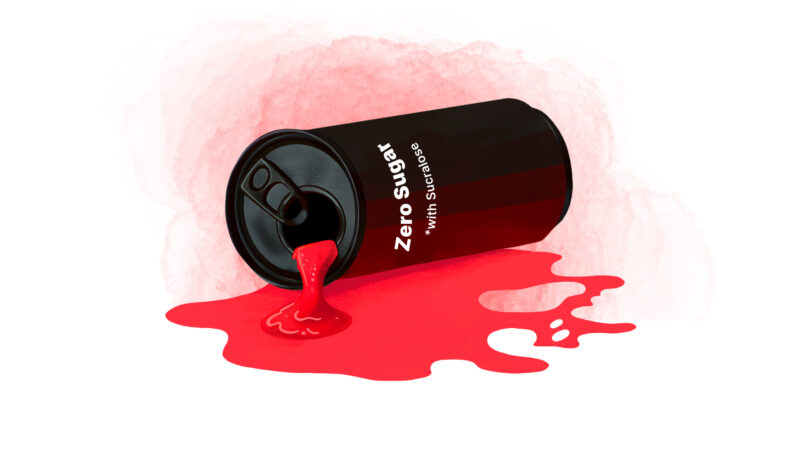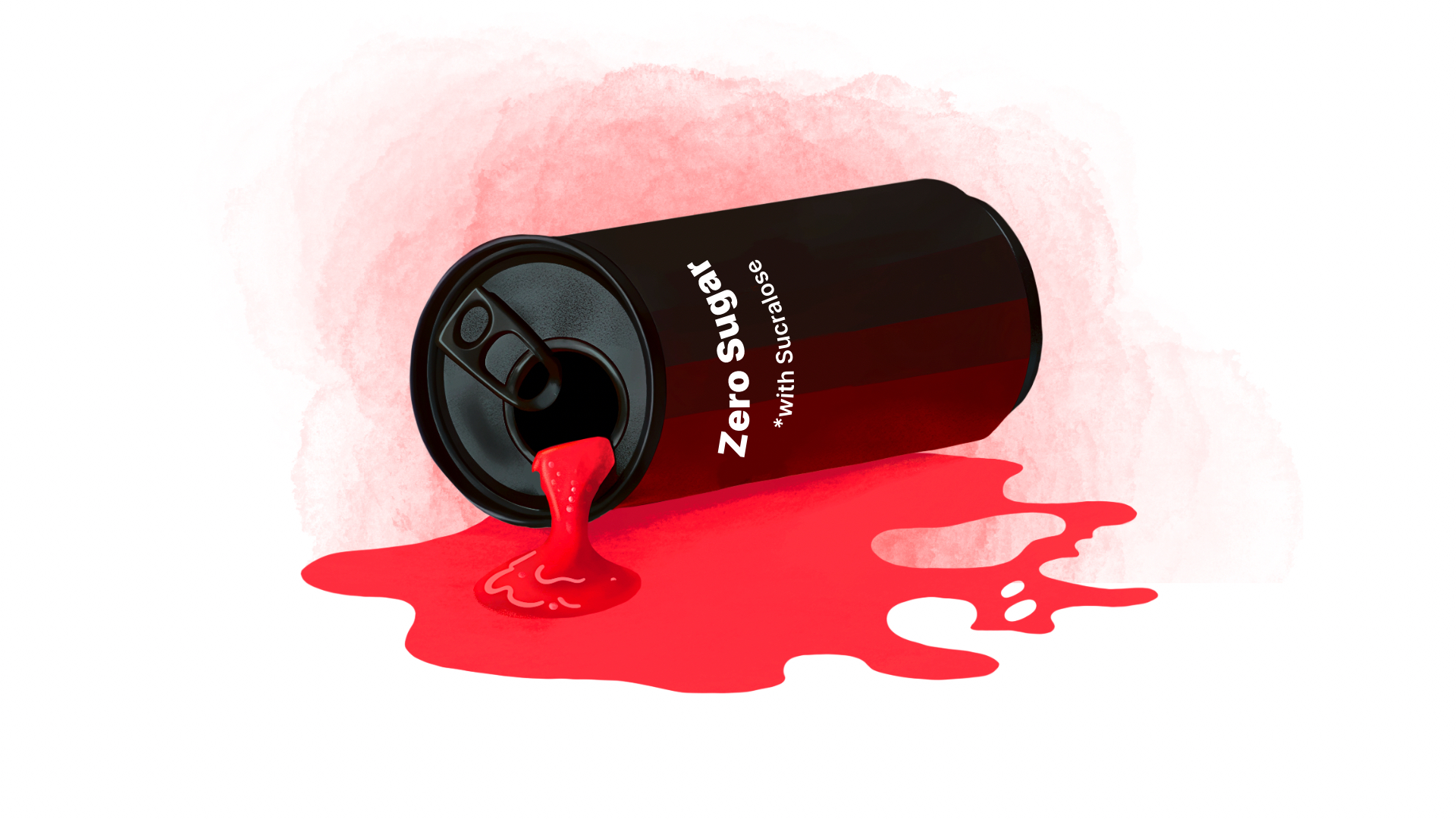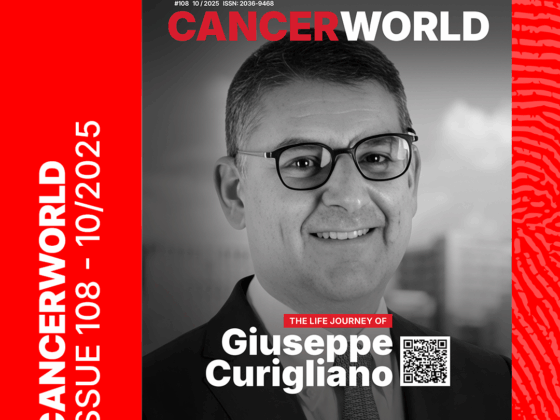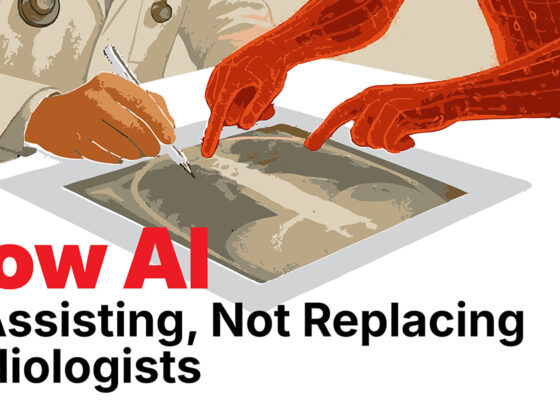Could artificial sweeteners undo the benefits of immunotherapy? A study published in Cancer Discovery, July 30, found that melanoma and non-small cell lung cancer (NSCLC) patients who consume high levels of the artificial sweetener sucralose have worse responses to immunotherapy than those whose diets are low in sucralose. In mouse studies, the investigators showed that supplements boosting levels of the amino acid arginine can prevent the negative effects of sucralose.
“It’s easy to say, ‘Stop drinking diet soda,’ but when patients are being treated for cancer, they are already dealing with enough, so asking them to drastically alter their diet may not be realistic,” says lead author Abby Overacre, from the Department of Immunology at the University of Pittsburgh and UPMC Hillman Cancer Center, Pennsylvania. “We need to meet patients where they are. That’s why it’s so exciting that arginine supplementation could be a simple approach to counteract the negative effects of sucralose on immunotherapy.”
While immunotherapy has shown remarkable success in various cancers, a significant percentage of patients do not respond to treatment, a finding that has stimulated research into contributory factors. Recently, the gut microbiome has emerged as a tumour-extrinsic regulator of response to immunotherapies (including checkpoint inhibitors and CAR T cell therapy). After a study published in Nature in 2023 showed that mice fed high levels of sucralose experienced lower T cell responses, attention shifted to artificial sweeteners. “We already knew artificial sweeteners shift the microbiome in a negative way and that the gut microbiome is critically important for immunotherapy responses. So, we decided to bring these ideas together and explore for the first time whether artificial sweeteners can influence immune therapy,” Overacre tells CancerWorld.
For the study, the team focused on sucralose, their reasoning being that out of the six non-sugar sweeteners approved by the FDA, sucralose is by far the most commonly used. Sucralose, made by replacing 3 hydroxyl (oxygen and hydrogen) groups in sucrose molecules with chloride atoms, is used in low-calorie snacks, diet drinks, chewing gum, sugar-free desserts, and protein supplements.
Mouse Model Demonstrates Link to Arginine
To explore mechanisms by which sucralose might hinder the effectiveness of immunotherapy, Overacre utilised two mouse models of cancer – MC38 (adenocarcinoma) and B16 (melanoma). First, mice in the experimental group were exposed to sucralose in their drinking water (0.09mg/mL, ~0.45mg/day, equivalent to three human packets) while control mice received normal drinking water. A few weeks later, all mice were injected with tumours and underwent three separate treatments with an anti-PD1 inhibitor. Mice in the sucralose arm continued to receive sucralose throughout treatment. Results showed that 40% of mice that received sucralose were able to clear their tumours, versus 80% of mice in the control group who did not receive sucralose. Furthermore, flow cytometry and single-cell RNA sequencing revealed significant reductions in the number of T cells infiltrating the tumours of mice receiving sucralose.
To explore the effect of sucralose on the microbiome, the team performed ‘shallow shotgun sequencing’ of mouse stools to provide compositional and functional sequencing of the microbiome. Results showed that mice who consumed sucralose had relative outgrowth of gram-positive bacteria, including Clostridiaceae and Lachnospiraceae, and also had high levels of the arginase enzyme (which breaks down the amino acid arginine) and low levels of arginine. “These data would suggest that ICI [immune checkpoint inhibitor] resistance after sucralose consumption is possibly due to phenotypic or functional shifts in the gut microbiota and is associated with an outgrowth of gram-positive bacteria,” write the authors.
Strikingly, mice that did not consume sucralose but received faecal transplants from sucralose-fed mice developed resistance to immunotherapy. Conversely, restoring a healthy microbiome through faecal transplants from ICI-responsive mice rescued treatment response, even in the presence of sucralose. “What this showed us was that the sucralose-driven microbiome changes were sufficient to drive immunotherapy resistance,” explains Overacre.
Finally, the team showed that supplementing the diet with arginine or citrulline (a precursor of arginine) was sufficient to restore arginine levels and reverse T cell dysfunction, thereby improving immunotherapy response in animal models. “So, it appears that sucralose consumption shifts the gut microbiome in a way that leads to reduced arginine levels, which in turn appears to be critically important for T cell function, the immune cells harnessed by immunotherapy to kill tumours,” explains Overacre.
Human Dietary Studies Reveal a Negative Impact on Immunotherapy
In an entirely separate project, Diwakar Davar, from the University of Pittsburgh Department of Medicine and a medical oncologist at UPMC Hillman Cancer Center, had already been administering dietary questionnaires to cancer patients undergoing immunotherapy. “We had been exploring the simple question of whether patients who eat well do better,” explains Davar. Since the semiquantitative Diet History Questionnaire III (DHQ III) food frequency questionnaires included information about sucralose intake, the project offered the perfect opportunity for Davar and Overacre to join forces to explore the effects of sucralose in immunotherapy patients.
Davar looked at three separate cohorts of patients from the Hillman Cancer Center – 91 patients with advanced melanoma receiving anti-PD-1-based immunotherapy; 41 patients with advanced non-small cell lung cancer (NSCLC) receiving anti-PD-1-based immunotherapy or chemoimmunotherapy; and 25 patients with high-risk, resectable melanoma receiving neoadjuvant treatment with anti-PD-1 and innate agonist vidutolimod.
Bioinformatic approaches identified an optimal cutoff (defined as > 0.16 mg/kg per day), and this cutoff across all three cohorts showed that high sucralose intake was associated with worse survival compared to low intake patients (defined as <0.16mg/kg/day).
- In patients with melanoma who received anti-PD-1-based immunotherapy or chemoimmunotherapy, median progression-free survival (PFS) was 8 months with high sucralose versus 13 months with low sucralose (HR, 2.23; 95% CI, 1.03-4.84; P =0.037).
- In patients with NSCLC who received anti-PD-1-based immunotherapy or chemoimmunotherapy, median PFS was 7 months with high sucralose versus 18 months with low sucralose (HR, 2.78; 95% CI, 1.03-7.5; P =0.034).
- In melanoma patients treated with an ICI and vidutolimod, median relapse free survival (RFS) was 19 months with high sucralose versus 25 months with low sucralose (HR, 6.69; 95% CI, 1.33-33.76; P=0.012).
“Our study bolsters the growing notion that artificial non-nutritive sweeteners, even those manufactured from sugar like sucralose, are not inert and can have broad immunomodulatory effects that adversely affect patient outcomes,” write the authors. Davar was surprised by the magnitude of the effect. “Simply by avoiding something that is bad, patients were doing 40% better. This is low-hanging fruit; giving up sucralose would be comparatively easy for patients to implement and could make an enormous difference to their outcomes,” he tells Cancerworld.
Cancer Patient Diets Need to be Spoke
Oncologists, Davar believes, need to be questioning patients more carefully about their diets. “Rather than just telling patients ‘To eat healthy,’ we need to become more specific about exactly what they should be consuming. Cancer medicine is bespoke, so why shouldn’t patients’ diets also be bespoke?”
In terms of next steps, Davar and Overacre hope to initiate a clinical trial to investigate whether citrulline supplements might mitigate the immunotherapy-dampening effects of sucralose. They also want to explore the impact of other sugar substitutes (aspartame, advantame, neotame, saccharin, and acesulfame potassium) on immunotherapy.
Independent Expert Comment
Jotham Suez, a microbiologist from Johns Hopkins Bloomberg School of Public Health (Baltimore, MD) who specialises in microbiome research, discusses the implications of the study with CancerWorld.
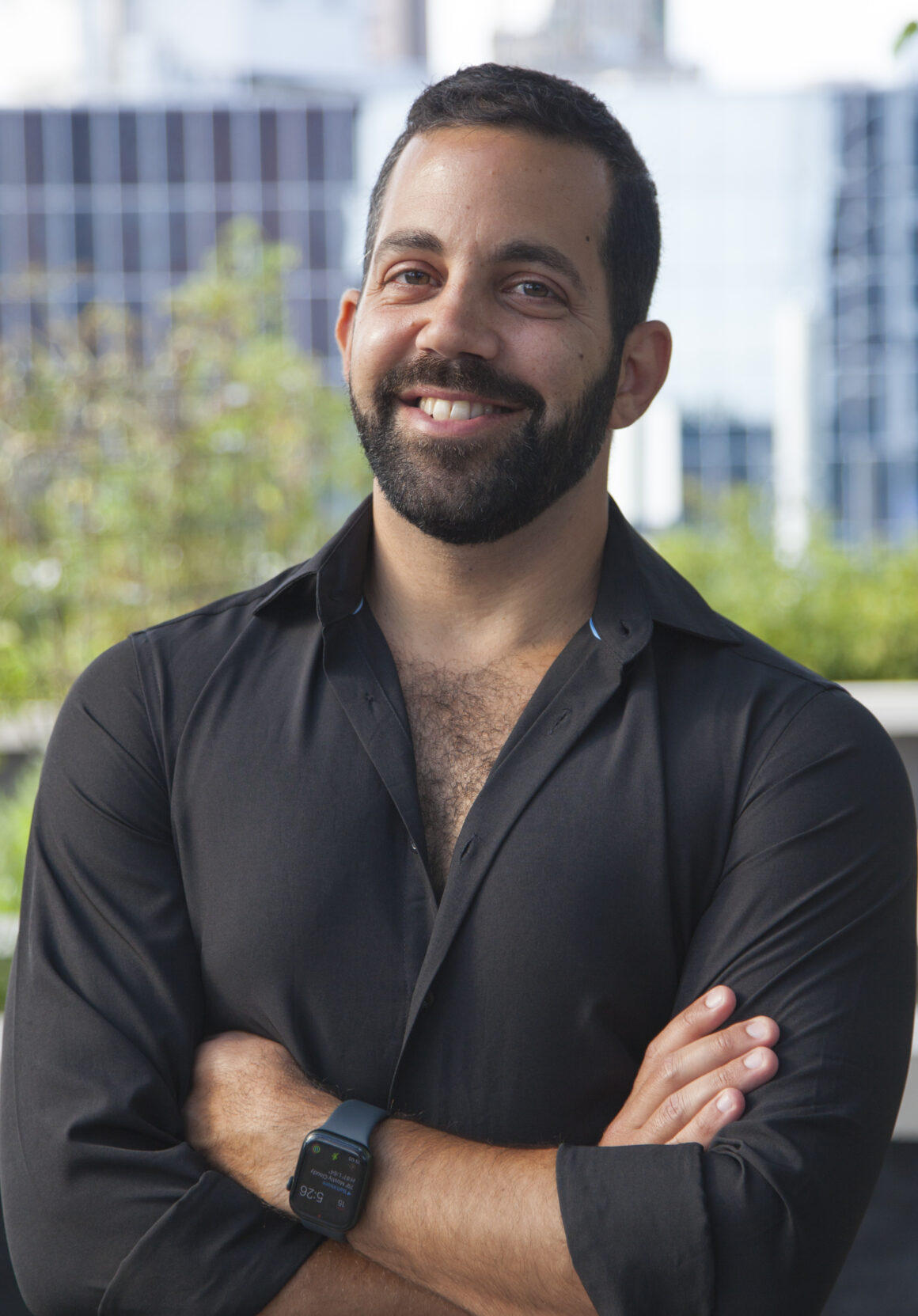
1. Could you comment on the overall significance of the study and what you see as the clinical importance of the findings?
This study is important because it shows us, for the first time, an unexpected connection between artificial sweeteners and the efficacy of cancer immunotherapy. We and others have shown that various artificial sweeteners can alter the human gut microbiome in a manner that increases an individual’s risk of developing diabetes. Multiple research groups have reported that the microbiome plays a crucial role in the efficacy of cancer immunotherapy and that person-to-person heterogeneity in the gut microbiome composition can lead to variation in immunotherapy efficacy. This study connects the dots between these pieces of information. It nicely complements observations in patients with interventions in mice that allow the authors to establish causality between the impact of sucralose on the microbiome and cancer immunotherapy efficacy. If the same causal links occur in patients, this could provide an additional means of improving immunotherapy efficacy through dietary changes.
2. What do you see as the unanswered questions arising from the study, and what further research would you like to see undertaken?
The combination of the human and mouse work makes it plausible that artificial sweeteners, and sucralose specifically, can reduce responsiveness to immunotherapy in humans. However, experiments where microbiomes from individuals with high versus no sucralose consumption are transplanted to mice would be helpful to strengthen this link and support the hypothesis that the mechanism shown in mice is also the reason for reduced immunotherapy responsiveness in humans.
Also, whether other artificial sweeteners besides sucralose have similar impacts on immunotherapy efficacy is currently unclear. Consumers of non-nutritive sweeteners often consume more than one type of sweetener, and therefore, it is difficult to isolate the contribution of a single type of sweetener. This is even more challenging when using food frequency questionnaires, which may not be sufficiently granular to identify the consumption of specific products and sweeteners they contain (e.g., specific types of diet soda). The authors did not test other types of sweeteners in their preclinical work; therefore, it is possible that the effects are not unique to sucralose, but more work is needed.
We do know from our own research that not everyone’s microbiome is impacted similarly by sucralose, and some microbiomes are more ‘resistant’ to its impacts. Therefore, it is unclear in what percentage of patients sucralose (or other artificial sweeteners) produces a microbiome that impairs immunotherapy efficacy.
3. What would you say to cancer patients concerned about the findings of this study?
The preclinical data are compelling, but more work is needed to determine whether the causal link between sucralose and reduced immunotherapy response is applicable in humans. Overall, this is an important first step that needs to be followed up by additional is also detrimental. If patients can reduce their intake of artificial sweeteners, human work with larger and more diverse cohorts, with an emphasis on establishing causality in humans. Given the currently speculative evidence, but with a potential risk, patients should consult their doctors to weigh the benefits and risks. Beyond response to immunotherapy, there are already data that non-nutritive sweeteners may be detrimental to health in at least some individuals. However, excess sugar consumptionwithout increasing sugar consumption, would be the safest option.

